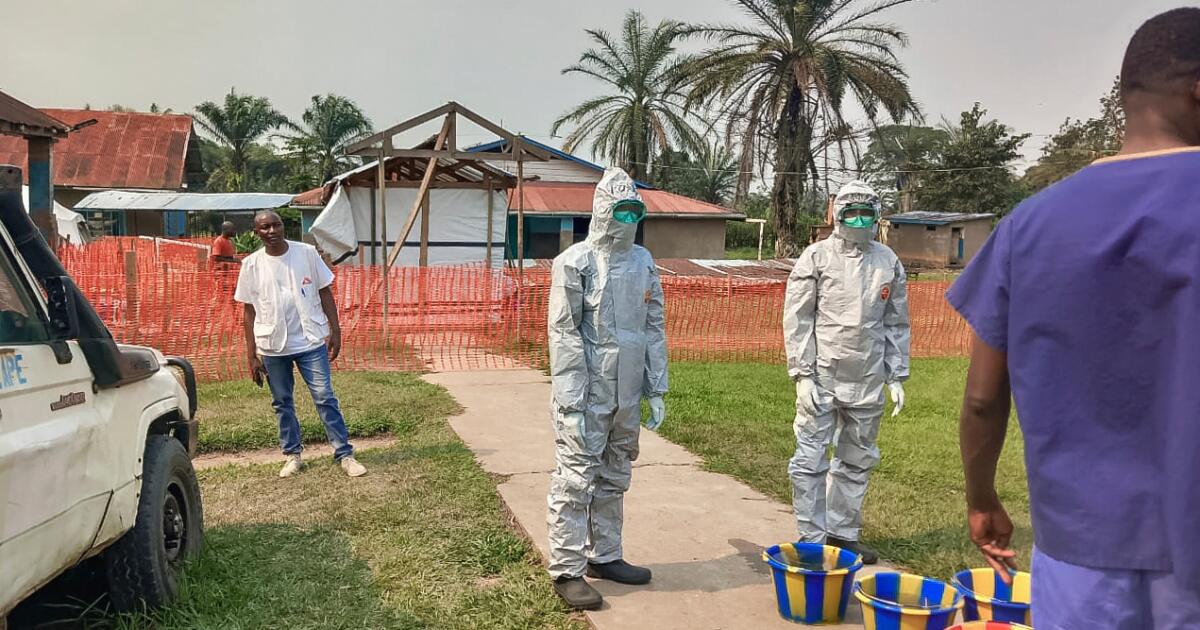KINSHASA, Congo — Limited access and scarce funds are the key challenges facing health officials trying to respond to the latest Ebola outbreak in southern Congo, according to the World Health Organization.
It is the first Ebola outbreak in 18 years in Kasai province, a remote part of the Democratic Republic of Congo with poor road networks that is more than 600 miles from the nation’s capital of Kinshasa.
A United Nations peacekeeping helicopter was used to help deliver 400 vaccine doses Friday to the outbreak’s epicenter, in the locality of Bulape, said Patrick Otim, the WHO’s program area manager, at a briefing in Geneva.
An additional 1,500 doses will be sent from Kinshasa, he said.
“We have struggled in the last seven days with access but are collaborating with MONUSCO now,” Otim said, referring to the U.N. peacekeeping mission in Congo.
While the WHO and Congolese authorities have “ramped up efforts to have a full-scale response” he added, “we need to be able to pay for the operations.”
Since the outbreak was confirmed Sept. 4, the number of suspected cases has increased from 28 to 68, Africa’s top health agency said Thursday. The Africa Centers for Disease Control and Prevention has so far reported 16 deaths.
Otim said the most recent confirmed case was about 40 miles from the current epicenter, but in the same province. “Our worry is if we get cases in the other health zone, we need to expand and it will be resource-intensive,” he said.
The WHO’s projected cost for the outbreak over the next three months is $20 million, while Congo’s national response plan is estimated at $78 million, said Otim.
A major concern for health officials has been the effect of recent U.S. funding cuts. The United States had supported the response to Congo’s past Ebola outbreaks, including in 2021 when the U.S. Agency for International Development provided up to $11.5 million to support efforts across Africa. USAID has seen drastic funding cuts since President Trump took office in January.
Protecting healthcare workers
At least four health workers are among the confirmed cases, according to Mathias Mossoko, Congo’s Ebola response coordinator in Bulape.
“For now, our priority is to vaccinate healthcare workers. Given the number of cases and deaths among healthcare providers, protecting these front-line workers is essential to ensure the population receives adequate care,” he said.
At least 94% of the suspected cases’ contacts — more than 600 people — have been traced, with only one so far confirmed to be infected, Mossoko said, adding that there’s minimal risk of the disease spreading to other provinces.
“At this stage, it is not yet appropriate to declare a public health emergency,” he said.
Medical charity Doctors Without Borders said its team is assisting in the response and worked with the WHO to establish an Ebola treatment center at the Bulape hospital.
“We helped reinforce triage protocols, supplied essential medicines and personal protective equipment, and conducted training in infection prevention and control and symptomatic care,” said Brice de le Vingne, the group’s emergency coordinator.
Asadu and Alonga write for the Associated Press and reported from Dakar, Senegal, and Kinshasa, respectively.
